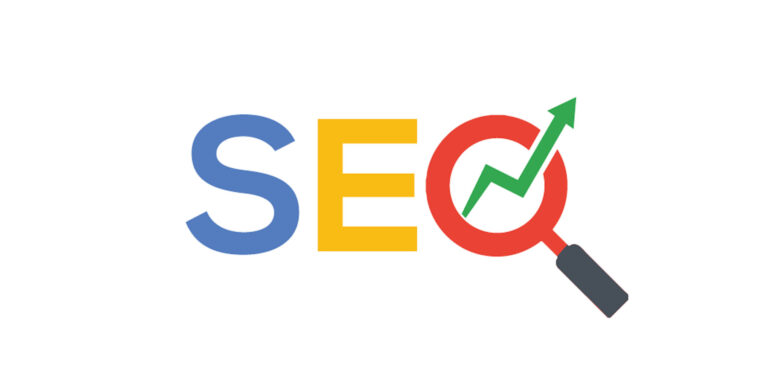Is Digital Marketing Legit?
If you’re reading this, you’ve probably seen a lot of social media posts from influencers promising big things about digital marketing. They make it sound super easy, like you’ll make more money than a doctor or be the top result on Google overnight. All you have to do is click a link and buy their course for a “special” price of $499.99. Sounds too good to be true, right?

You’re not wrong to feel like something seems off. But the truth is, those influencers are using digital marketing to their advantage. And like it or not, if you want your business to succeed in today’s online world, you’re going to need digital marketing too.
So how do you make sure you don’t get scammed, waste your time, or worst of all do something that makes Google freak out and push your website to the very last page, where no one will ever find it? Even worse, what if they ban you completely?
How can you make sure you’re doing it the right way? And what should you stay away from? These are great questions, and we’ll answer them in this article.
Understanding the Concept of Digital Marketing
Digital marketing is a wide-ranging concept that includes different ways to promote products or services online.
It has completely changed how businesses connect with people and get their attention.
Over the years, the online world has changed a lot, growing and adjusting to keep up with new technology and trends.

The Evolution of Digital Marketing
Marketing used to depend only on things like newspaper ads and TV commercials.
But now, thanks to the internet, digital marketing has become a powerful way for businesses to reach people.
From websites and SEO (helping sites show up on Google) to social media and email ads, digital marketing is now a big part of how businesses grow.
One big reason digital marketing has changed so much is because more people use smartphones.
Since phones are now a huge part of everyday life, businesses had to change their strategies to reach mobile users.
This is why we now have phone friendly websites, mobile apps, and ads based on where you are.

Key Components of Digital Marketing
A successful marketing plan has different important parts that work together to get good results.
These parts include things like SEO (helping websites show up on Google), content marketing (sharing helpful or fun information), social media marketing, email ads, and paid online ads (PPC).
Each part helps in its own way, bringing in visitors, finding potential customers, and turning them into buyers.
SEO
SEO is important for making a website easier to find on Google and other search engines. By improving the website’s content, layout, and technical details, businesses can show up higher in search results and get more visitors who are actually interested in what they offer.
Content Marketing
Content marketing is all about making and sharing useful information to attract and interest the right people. This can include blog posts, articles, videos, pictures, and more.
When businesses give helpful tips and solve problems their audience cares about, they can become experts in their field and build trust with their customers.
Social Media Marketing
Social media marketing helps businesses connect with people on sites like Facebook, Instagram, Twitter, and LinkedIn.
By sharing interesting posts, running ads for the right audience, and talking with customers, businesses can grow a loyal fan base and make more people aware of their brand.
Email Marketing
Email marketing is a great way for businesses to turn interested people into customers.
By sending personalised and useful emails, they can build relationships, share products or services, and increase sales.
It also helps businesses send the right messages to the right people based on what they like and do.
Pay-Per-Click (PPC)
PPC advertising is when businesses put ads on Google or social media and only pay when someone clicks on them.
This helps businesses reach the right people and quickly bring visitors to their website.
By choosing the right words and targeting the right audience, businesses can get the most out of their money and reach their goals.

Common Digital Marketing Scams To Avoid
1. Fake SEO Promises
Some digital marketing scams try to trick businesses with big, exciting promises about SEO that aren’t real. Falling for these scams can waste money and even hurt your website in the long run.
Here are some common fake SEO promises to watch out for:
“We’ll skyrocket your site traffic overnight!”
A big jump in website visitors might sound exciting, but it’s usually caused by bots, not real people. If those extra visitors don’t turn into customers, the numbers don’t really matter and could even hurt your website.
“We’ll submit your site to hundreds of search engines!”
This promise is misleading because Google, Bing, and Yahoo make up 96% of all searches. Submitting your website to a bunch of other small search engines won’t help much and is mostly a waste of time.
“We guarantee top search rankings!”
Promises of getting to the top of search results are often achieved through paid ads, not real SEO. True SEO success takes time, effort, and a smart plan, it doesn’t happen overnight.
To avoid fake SEO services, be careful of companies that promise instant results or use secret tricks. Instead choose companies that are honest about their plans, give realistic timelines, and focus on long term success. Go for ones that do quality work, are trustworthy, and truly help your business grow.
“We will raise your domain rating (DR) to 70 or 90!”
DR measures how strong a website’s backlinks are. While these numbers can help with SEO analysis, they are just approximations about how a search engine might view your website.
Scammers take advantage of a flaw in how Moz calculates Domain Authority (DA) to get high scores. Moz assumes that any link from a strong website is also valuable. Scammers trick the system by adding lots of low quality, spammy links to certain pages. This forces web crawlers like Moz, Ahrefs, and Majestic to notice them, analyse them, and assign value based on their link connections and Google’s ranking system.
Much like the above these things take time and planning.

2. Fraudulent Ad Spend Practices
Fraudulent ad spending is a common issue in online marketing, where some agencies manipulate data or misrepresent advertising costs and results to deceive their clients.
Some marketing agencies charge more for ads than they should, pretend the ads made more money than they actually did, or use part of the budget for something else. This kind of dishonesty can waste your money and distort your marketing results.
Enhancing Ad Spend Transparency and Fraud Prevention
To protect your business from ad scams, it’s important to be open and check things carefully. Start by asking for clear reports that show exactly where your money is going and what results you’re getting.
Compare these reports with data from platforms like Google Ads or Facebook Ads to make sure they match. Get direct access to tracking tools so you can check on your ads yourself.
Talking openly with your agency is also key. Make sure they explain what they’re doing and answer any questions you have. Regularly reviewing your ad spending can help catch problems early and save you money.

3. Fake Marketing Agencies
Scammers often create fake marketing agencies that look professional and seem successful to trick businesses.
They show off fancy websites, fake client lists, and made up results to seem trustworthy. Some even use fake or outdated contact information to mislead companies.
Their goal is to get your money, but since they don’t actually know what they’re doing, you could end up wasting time, losing money, and even hurting your business’s reputation.
Identifying Warning Signs
Finding fake marketing agencies takes a sharp eye. First, check their past work and experience. If they say they worked with big clients, try reaching out to those companies to see if it’s true.
Look at their social media pages to see if they actually interact with people, and read reviews on trusted sites like Trustpilot. Be careful if they offer prices that seem too cheap, aren’t clear about what they do, or don’t communicate well.
Taking the time to research an agency can help you choose a trustworthy one and protect your business from scams.

4. Bot Traffic
Bot traffic, caused by computer programs called bots, can really hurt businesses trying to market online.
These hostile bots trick businesses by faking clicks and views on ads, making it look like a campaign is doing great when it’s really just wasting money. They can also fill out forms with fake information, making businesses think real customers are interested when they’re not.
Bots can mess up website data by acting like real people, leading businesses to make bad marketing choices. On social media, they create fake likes and comments, tricking businesses into using strategies that don’t actually work.
They also confuse tracking systems by making it seem like more people are interacting with ads than they really are. To fight bot traffic, businesses can use smart tools like AI, behavior tracking, and biometric security.
Keeping data up to date and working with trusted advertising platforms can also help protect businesses from these scams and keep their marketing on track.
5. Fake Leads
Fake leads are a big problem in digital marketing where scammers trick businesses by creating or changing customer information. Sometimes, they make up fake leads, change real ones, or use sneaky tricks to create bad leads.
This causes a lot of problems, businesses waste time and money chasing leads that aren’t real, and they might even lose trust with real customers.
Companies also lose money because they pay for leads that never turn into real buyers, which can really hurt their business.

6. Business Directory Scams
Business directory scams often trick small businesses by pretending to be real services. It usually starts with a phone call from someone asking to confirm your business details, like your name and address, for a directory listing.
After giving this information, you might get a bill for a listing that isn’t actually new or useful, it’s just a copy of something already online.
Many businesses pay without thinking twice. If you question it, scammers might threaten legal trouble or offer a fake “discount” to pressure you into paying. Some even play back a recording of your call to make it seem like you agreed to the charge.
Preventing Business Directory Scams
To avoid these scams, teach your employees how to spot fake “verification” calls. Anyone who answers phones or handles payments should know these tricks.
Talk about scams in staff meetings, send email warnings, and post reminders where everyone can see them. Always double check if your business is already listed somewhere before paying for a new listing. If something seems off, don’t pay.
Watch out for invoices with plain logos, since these aren’t official brands. Also, be suspicious of invoices with no phone number or address.
Even if the invoice has contact details, make sure the business is real by looking it up on official websites like the ATO or ABN Lookup.

7. Falsified Back Catalog
Some marketing companies trick people by making fake success stories or exaggerating their past work. They might use made up numbers or false results to make themselves look better than they really are. This can give businesses false hopes, leading to wasted money and disappointment. It also breaks trust and goes against honest business practices.
Businesses need real information to make smart choices. Lying about past work not only hurts clients but can also lead to legal trouble and damage the company’s reputation.
To avoid being fooled, always check if an agency’s claims are real. Read reviews on Trustpilot, look at their social media, and see if they interact with real clients on LinkedIn. If possible, reach out to their past clients to confirm their experiences. Doing this research can save time, money, and help you choose a trustworthy agency.
8. Cheap Website Scam
Having a good website is important for businesses, but super cheap website offers can be a scam. These deals might give you a poorly made site or even a copy of another website, which can get you in trouble with Google for using unoriginal content.
Scammers trick businesses by making their offers look great, but in the end, they can cause money loss and hurt a company’s reputation. To stay safe, businesses should hire trusted website developers and be careful of deals that seem too good to be true.

9. Suspicious Communication
If a company keeps delaying things, giving confusing answers, or not being clear, it might not be trustworthy. Good businesses communicate quickly and honestly.
If a company is always hard to reach or gives misleading information, there might be a bigger problem. Reliable companies are open and helpful, so if communication is a constant issue, it’s a sign to think twice before working with them.
10. Upfront Payments for Promises
Watch out for online marketing scams that ask for money before doing any work. These scams often demand payment upfront but don’t deliver what they promise.
Also, be careful of deals that say you must act fast because the offer won’t last long. Scammers use this trick to rush you into making a quick decision.
Honest businesses don’t ask for payment until after they provide the service. Always research companies first and take your time to avoid falling for these scams.
How To Safeguard Your Business From Deceptive Digital Marketing Practices?
You can protect your business from digital marketing scams by following these steps:
- Do your research before working with a marketing agency or influencer. Check their background, read reviews, and ask for proof of their past work.
- Set clear contracts that explain exactly what services will be done, when payments are due, and how progress will be reported.
- Expect regular updates that are weekly or monthly and make sure they clearly explain their results. If they can’t, that’s a red flag.
- Use trusted platforms and tools that have strong security features like encryption and fraud detection.
- Keep your software updated and check your accounts often for any suspicious activity.
Spotting scams is just the first step. The real challenge is staying ahead of them. By using smart strategies, businesses can not only avoid fraud but also turn risks into chances for growth. Being proactive helps strengthen marketing efforts and move forward with confidence.

Conclusion
So, is digital marketing legit?
Yes! It’s a powerful and legit way for businesses to grow and reach their goals.

By learning how it works, clearing up common misunderstandings, and using it the right way, businesses can take advantage of all the benefits digital marketing has to offer.
Thinking about upgrading your business with digital marketing?
Check out the 10am Digital to get started.
Or, if you have questions, get in contact with our team to learn more!







